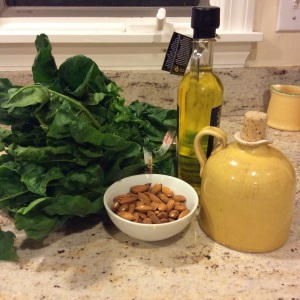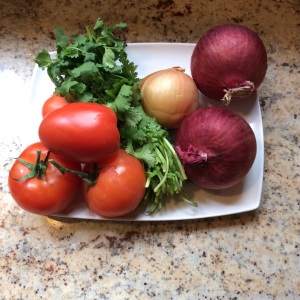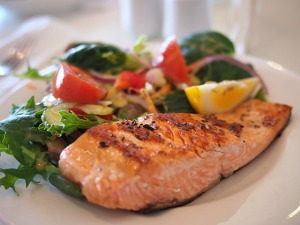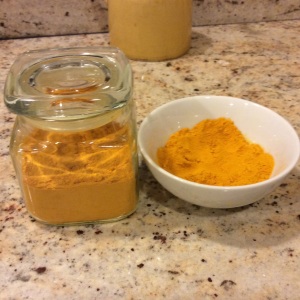Brain boosting foods: A slew of research in experimental animal models as well as human beings demonstrates that certain dietary components may actually impact brain function and cognitive ability, opening up novel and exciting approaches to manipulate one’s diet to enhance memory and cognitive function (1).
While numerous studies have linked a typical Western diet high in saturated fats, trans fats and refined sugars with compromised cognitive function, Alzheimer’s disease (2), and other neuro-degenerative conditions (3), diets high in omega 3- fatty acids (4), curcumin or turmeric (5), and flavonoids (a class of anti-oxidants) (6), are known to have the opposite effect.
There is also some emerging research that shows Vitamin E, a fat soluble vitamin (7), and exercise (8), may also play a beneficial role in this process.
The superstar, BDNF: In this context, an important molecule called BDNF, or brain derived neurotrophic factor, a neurotrophin (signals neurons or nerve cells to survive, and grow), has been receiving attention as it plays the lead role in neuronal plasticity.
What is neuronal plasticity? (Think increased flexibility or pliability of the nerve cells in the brain). Neuronal plasticity could be defined as the ability of the neurons (nerve cells in the brain) to respond with adaptive changes to internal and external conditions. The process by which our experiences can reorganize neural pathways in our brain is called neuroplasticity. For example, sustained changes occur in the brain when we learn something new, or the brain may reorganize in response to injury, disease or environmental changes.
BDNF is most abundant in a part of the brain called the hippocampus, that is involved with memory and spatial orientation.

Plant oils and nuts contain the potent antioxidant Vitamin E with smaller amounts from leafy greens.Copyright © 2015 Sangeeta Pradhan
Dietary components that raise BDNF are, therefore not surprisingly associated with enhanced cognitive ability and vice versa.
Rejuvenate with Vitamin E: In a 2002 study by Moteni and Barnard, a two month exposure to a high fat diet reduced hippocampal levels of BDNF and impaired spatial learning performance in rats (9), however in other experimental studies in which rats on a high fat diet were supplemented with Vitamin E, this antioxidant significantly reduced free radical damage caused by consumption of the high fat diet and actually reversed the diet impaired cognitive function (7). Plant foods, especially plant oils, wheat germ and nuts are the primary source of vitamin E in the diet, with smaller amounts in leafy vegetables and some fruits.
Smarten up with omega-3s: Another key player that has emerged in this context is DHA, an important omega-3 fatty acid. The omega-3 fatty acids are key components of cell membranes and are essential for normal brain function. DHA is the most abundant fatty acid in the brain and its levels may be altered by the mix of fatty acids consumed as well as with life stage, increasing during developmental stages and decreasing with aging (10). Dietary sources of DHA are fatty fish ( this is the most efficient way of assimilation) or via its precursor alpha linolenic acid, or ALA. ALA can be obtained from flax-seed, nuts such as walnuts, canola and soybean oils. However, very little ALA converts to DHA, and conversion is impacted by enzyme competition, and diet and health status, so your best bet for getting DHA is to get it directly from fatty fish consumption. Note that your body cannot make DHA, so you must get it from food alone.
Recent studies have shown DHA’s ability to reduce oxidative stress, protecting against free radical damage in both developing, and adult brains, thus underscoring it’s role throughout the lifespan (10). A few studies have linked a deficiency of dietary omega-3 fatty acids, with increased risk of mental illness such as schizophrenia (11), in human beings.
DHA supplementation has been shown to counteract compromised neuronal plasticity, normalize levels of BDNF, and reduce oxidative stress following traumatic brain injury in rats (4). Interestingly, the combination of DHA and exercise raises BDNF to a much greater than extent than either factor alone (8), underscoring the synergistic effect accomplished by these two factors.
Arm with antioxidants: Similarly, a 2007 study on plant derived flavonoids along with exercise, showed that the hippocampus is particularly sensitive to the effects of flavonoids, and there is an up-regulation or increased expression of genes that are associated with learning and synaptic plasticity, and a down regulation of those associated with inflammation, and learning deficits, once again highlighting the synergistic effect of an active lifestyle and antioxidants (6). The principal sources of flavonoids come from bright-colored fruits and vegetables such as blueberries, grapes and in beverages such as tea, wine and cocoa (6). In human beings, the consumption of flavonoid-rich foods, such as berries and cocoa, throughout life holds the potential to prevent or reverse normal or abnormal deterioration in cognitive performance (12).

Dark chocolate and beverages such as red wine and cocoa contain flavonoids which are important phytonutrients. Copyright © 2015, Sangeeta Pradhan, RD, LDN, CDE.

Brightly colored fruits and vegetables are rich in antioxidants. Copyright, 2015, Sangeeta Pradhan, RD, LDN, CDE.
Also, some studies show that excess calorie consumption may create free radical damage, which reduces BDNF, while moderate calorie restriction may increase BDNF and improve neuronal plasticity (13).
Sharpen your brain with turmeric: Finally, turmeric or curcumin, a common spice used in Indian curries has emerged as a potent antioxidant and anti inflammatory agent that reduces memory deficits in Alzheimer’s (14). Supplementation of curcumin in the diet dramatically reduced oxidative damage, normalized levels of BDNF, and offset cognitive impairment caused by brain trauma (5). It holds promise as an agent for preventing Alzheimer’s. While both these studies were in rats, a randomized, double-blind, placebo controlled study in 60 healthy adults investigating curcumin’s effects on cognition and mood, also showed promising results (15).
In conclusion, while many dietary components can profoundly impact brain function, it is important to avoid focusing on isolated nutrients alone. The key would be to focus on whole dietary patterns instead, and to incorporate exercise concomitantly with one’s diet to harness the synergistic benefits.















































Thanks for excellent info.! http://savorystalks.com/2015/07/22/the-creative-blogger-award/ 🙂
LikeLiked by 1 person
Thank you so much! Glad you enjoyed reading the article!
LikeLiked by 1 person
So informative!
What Time Is Dinner? 🍴🍴🍴
“Sisterhood of the World” Award
What time is Dinner? I adore food blogs, so when a friend who shares my love of food nominates me for a blogging award…..I just want to celebrate by Eating Ice Cream!! 🍦Discovering sisters across the miles who enjoy getting to know each other makes this world a little bit smaller. If you choose to participate, you may follow the link to http://snapshotsincursive.com/2015/08/05
LikeLike
Thank you so much. Honored indeed by the nomination. Also very glad you found the article informative.
LikeLiked by 1 person
Yes. I absorb new information. Life is about growth. Thanks very much. 🍓
LikeLiked by 1 person
Could not agree more😊
LikeLiked by 1 person
A very informative post. I’ve just started taking tumeric capsules because of neck pain. Would you know long does one have to take it before seeing results?
Thanks for visiting my blog and thus allowing me to discover yours! 🙂
LikeLiked by 1 person
Hi Carol,
Thank you. That is a great question. While there is certainly some literature that discusses the use of turmeric for treating pain, since my research focused primarily on the association between turmeric and cognitive function, I have little knowledge about the use of turmeric to treat pain. Hence, I am unable to answer that question unfortunately. Thank you for stopping by and your positive feedback on my post.😊
LikeLike
Thanks…If the turmeric doesn’t help my pain at least I’ll be more alert! 🙂
LikeLiked by 1 person
That’s for sure; touché 😊!
LikeLike
Thanks for visiting my blog.
Your blog is very informative on Diets and Nutrition.
I shall keep visiting.
Fondest Regards
Shiva
LikeLiked by 1 person
Thank you very much, Shiva. So glad you found it helpful.
Best regards!
Sangeeta
LikeLike
I couldn’t seem to leave a comment on your most recent post about sugars, but I wanted to let you know I thought it was a great discussion of the issue. And I agree with you–obesity is a multi-factorial problem that requires interventions at multiple levels.
LikeLiked by 1 person
Hi Carrie,
Thank you so much for your positive feedback. I am not sure why you were unable to leave a comment on the sugar article, as I just checked my settings and comments have been enabled. So glad you liked the discussion. Your feedback is very valuable as it helps me create posts that are relevant and meaningful for readers:))
LikeLiked by 1 person
You’re welcome. It’s a topic I’m very interested in (and one I’ve incorporated into my upcoming fiction.) For some reason, the comment box doesn’t show for me on the post. Probably a glitch from my end. 🙂
LikeLiked by 1 person
Carrie, that’s very interesting. I will look forward to your upcoming fiction piece:))
LikeLiked by 1 person
“…therefore not surprisingly associated with enhanced cognitive ability…” I wonder if I can spin this to justify redecorating my kitchen. Seriously, my entire household noticed the difference in my overall health, including steady, gradual weight loss after I rehabed my diet, eliminated all processed sugars and most saturated fats (except for adding coconut oil). And see there, I’ve said for years that chocolate (cocoa) and wine are healthy staples : ) always in moderation. Seriously, this is an excellent, informative article.
LikeLiked by 1 person
Thank you. Love your comments! Yes, as I explain to my patients, man has not evolved on a diet containing foods that look like chemical cocktails….as we purge these foods from our daily routines and replace them with “real”, whole foods, we enjoy their health enhancing benefits…studies show consistently the link between plant based foods and improved health. And you are right..a little (1 oz) dark chocolate ( minimally 70% cocoa ) a day, and wine in moderation ( no more than 4 oz for women, 8 oz tops for men), in the context of a healthy diet of course does not hurt. Thanks much for stopping by:)
LikeLike